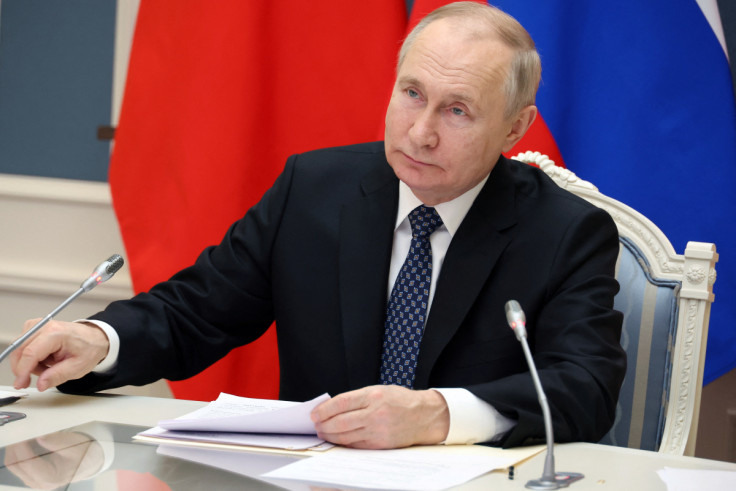Russian woman fined for 'sex is cool, but Putin's death is better' text on tote bag
Several such incidents have been reported since the Russian invasion of Ukraine.

A Russian woman known only as Aleksandra was slapped with a fine for sharing images of a tote bag that said, "Sex is cool, but President Putin's death is better."
The woman, who was questioned by officials of Russia's Ministry of Internal Affairs, opened up about her ordeal on Twitter. She revealed she was also fined for having a pro-LGBTQ community tattoo on her arm.
The Russian authorities slapped a fine of 30,000 rubles (approx £243) on her for "discrediting" the Russian military. According to local media reports, the officials took screenshots of her Instagram posts and showed them to her as proof.
The posts included a picture of a bag with a "No to War" slogan and several similar posts. Even though her Instagram account does not have a lot of followers, the Russian authorities managed to track her down.
The woman revealed that two policemen in plain clothes came to her house on June 28. They told her that a complaint had been filed against her for anti-government posts. She was eventually taken to the Ministry of Internal Affairs department in Krasnodar, where she was questioned for her social media posts.
‘Sex is Cool, But Putin’s Death Better’ Tote Bag Results in 30K Fine for Russian Woman https://t.co/gVRkngVJRY pic.twitter.com/EUQshCv75v
— The Messenger (@TheMessenger) August 3, 2023
"They told me to raise the sleeves of my T-shirt, examined all my tattoos, asked me to translate what the inscriptions in English mean, and also took photos of my face and tattoos," The New York Post quoted her as saying.
She was charged with "propaganda of non-traditional sexual relations" for having a tattoo depicting a dog wearing a rainbow scarf with an inscription stating that the "dog is gay."
Thousands of Russians like Aleksandra have been against Putin's war in Ukraine. The country has even seen several protests against Putin's actions.
In September last year, thousands of Russians took to the streets to hold demonstrations against the Russian invasion of Ukraine. However, Putin managed to quell all forms of dissent with force.
Several videos of anti-war protesters being detained by the Russian authorities made it to social media platforms such as Facebook. One such video showed a visibly distressed 7-year-old girl crying helplessly for her mother after they were detained by police officers in St. Petersburg.
Since the start of the Russian offensive in Ukraine on February 24, 2022 the authorities have stepped up censorship, which was already strict, to control the way in which the war is portrayed on television and in the press, as well as by private individuals on social networks.
Using words such as "war" or "invasion" to describe the intervention or refer to actions against civilians is prohibited.
In another case, a Russian artist is facing up to 10 years in jail for protesting against the country's invasion of Ukraine. A local court has put her behind bars for allegedly spreading "fake news," about the war.
The woman was charged under a new law banning "fake news" about Russia's armed forces after she replaced price tags at a supermarket with tags carrying information about Moscow's actions in Ukraine.
The Investigators accused Skochilenko of "putting fragments of paper in place of price tags, containing knowingly false information about the use of the Russian armed forces" in a Perekryostok supermarket.
"The Russian army bombed an art school in Mariupol where about 400 people were hiding from the shelling," read one of the price tags. She was detained soon after the authorities learned about it.
The trial in the case is still underway. If found guilty in the case, she could face a fine of 3 million roubles (£27,000) and 5 to 10 years in jail.
In a similar incident reported earlier this year, a Russian court gave a two-year suspended sentence to a woman for leaving a note on the grave of President Vladimir Putin's parents, which read that they had "raised a freak and a killer."
"Parents of a maniac, take him to your place. He causes so much pain and trouble. The whole world prays for his death. Death to Putin. You raised a freak and a killer," read the note. The 60-year-old woman put the note on the graves on the eve of Putin's birthday last year in October.
© Copyright IBTimes 2025. All rights reserved.






















